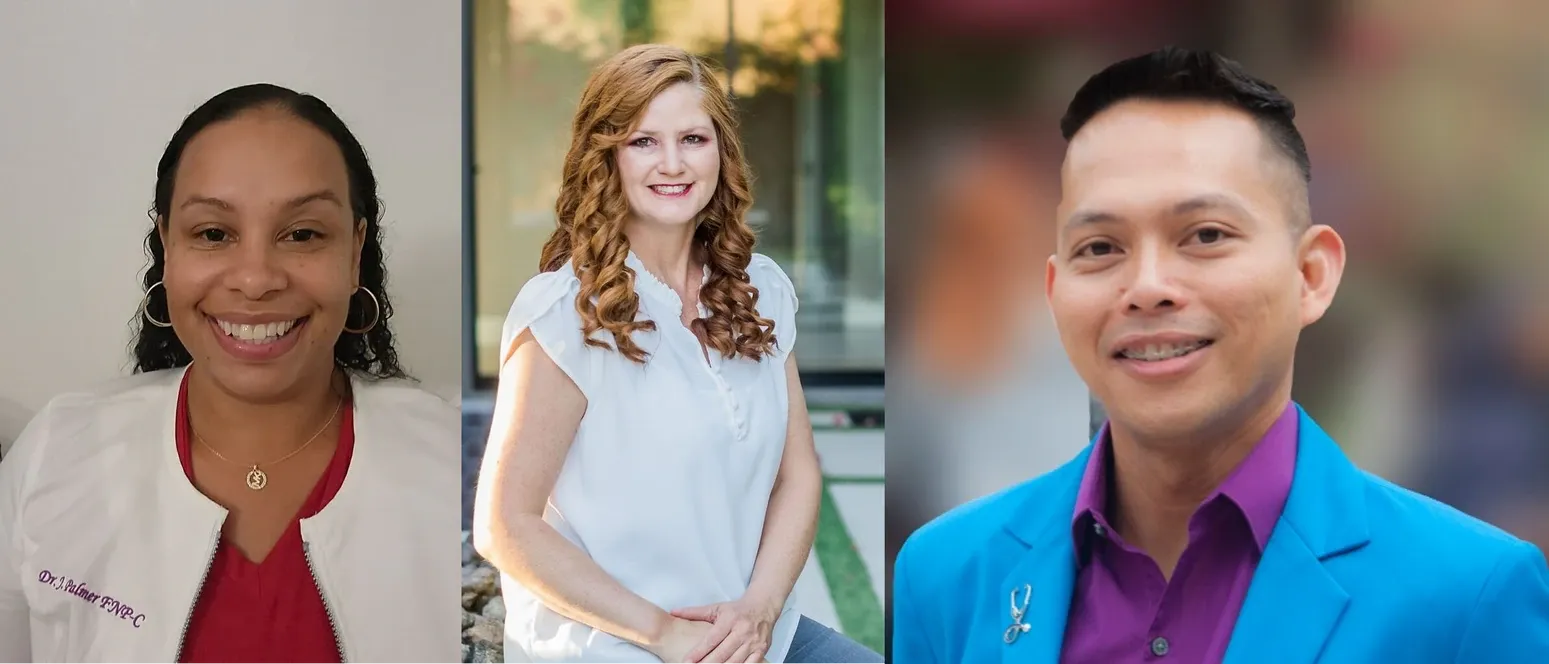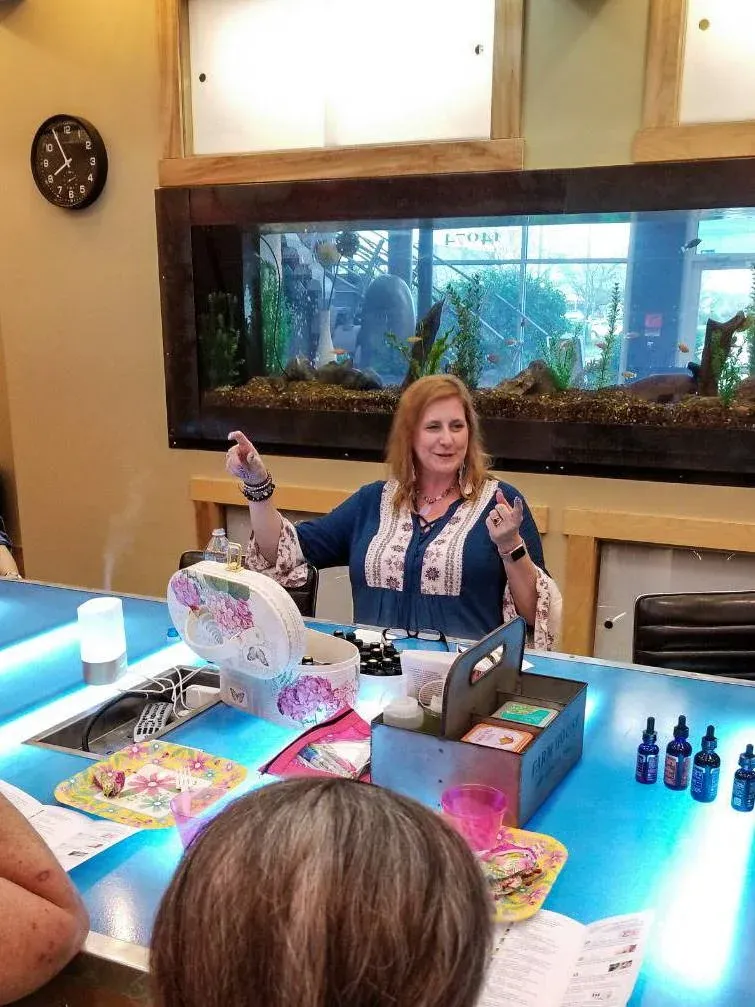Trio of butthurt nurse practitioners sue California attorney general for the right to call themselves "Doctor"
💬 comments
Why not spend your time, energy, and money on applying to medical school instead so you can eventually become a real doctor?

Remember the case of Sarah Erny, the California nurse practitioner with a "Doctorate" of Nursing Practice (DNP) who got slammed with a $20,000 fine for promoting herself as a doctor? The case that made national headlines and also inspired our own article below?

Yeah, that case.

Unsurprisingly, this incident hurt the feelings of many midlevel nurse practitioners, especially those who decided to enrich the alphabet soup at the end of their names by purchasing earning a "Doctorate" of Nursing Practice from such esteemed institutions as Chamberlain University (plaintiff Jacqueline Palmer) and Aspen University (plaintiff Heather Lewis). At least the other plaintiff, Mr. Rodolfo Jaravata-Hanson, obtained his DNP from a somewhat more reputable institution, the Johns Hopkins University School of Nursing. It's worth noting that Johns Hopkins is the very same institution that endorsed the use of midlevel nurse practitioners to perform colonoscopies on patients.

This trio of midlevel nurse practitioners, who we can only presume were significantly more butthurt than their colleagues who didn't decide to file a frivolous lawsuit, did just that by filing a federal lawsuit in the U.S. District Court for the Central District of California against not only the California attorney general, but also the president of the Medical Board of California and the executive officer of the California Board of Registered Nursing. They're represented by attorneys from the Pacific Legal Foundation, a non-profit legal organization which claims to "defend Americans from government overreach and abuse." It's interesting to note that all three plaintiffs obtained their DNP degrees very recently, with Heather Lewis and Rodolfo Jaravata-Hanson getting their DNPs in March 2023 and May 2023 respectively per the complaint. And given their varied ethnic backgrounds, one can only wonder if the Pacific Legal Foundation specifically hand-picked these individuals to engineer a quasi-class-action lawsuit.
Quite frankly, as for the complaint itself, we find the mental gymnastics used to justify their logic to be hilariously weak and nonsensical. Citing Sarah Erny's case, they describe a "fear that Defendants will take action against them similar to those taken against Dr. Erny". Excerpted below is our point-by-point rebuttal of points 20-28 from the full complaint:
- At the family practice clinic where she serves primary care clientele, Dr. Palmer’s colleagues, including physicians, have never expressed concerns that she is referred to as “Dr. Palmer, FNP.” When she interacts with her patients at the clinic, she explains that she is a Nurse Practitioner and not a physician. Dr. Palmer’s clinician’s jacket has her name embroidered with “Dr. J. Palmer, FNP-C.” She has signed her name using “Dr.” and qualified with “FNP” on official clinic documents.
Just because your physician colleagues have never (openly) expressed concerns about you being referred to as a "Doctor" doesn't mean they aren't concerned. Hell, has she never heard of Physicians for Patient Protection, the r/Noctor subreddit, or our very own fucking website?
- Dr. Palmer has never misrepresented to anyone, directly or indirectly, that she is a physician, nor have her patients or physician colleagues mistaken her for a physician.
Oh, so now we're just supposed to unconditionally believe you and take your word for it now? Prove it. You're the one filing this steaming-hot-piece-of-shit lawsuit, after all.
- Since learning about Defendants’ actions against Dr. Erny, Dr. Palmer no longer signs her name with the title “Dr.” She has hung up her clinician’s jacket embroidered with “Dr. J. Palmer, FNP-C” on the front. She has asked others in the clinic not to refer to her as “Dr.” and has refrained from referring to herself that way. Dr. Palmer fears that Defendants will open an enforcement action against her.
Take a shot every time the phrase "Dr. Erny" appears in the complaint. For real though, why can't you just embroider your jacket/coat/scrubs with "J. Palmer, DNP" on it instead? How about being in fear of your patients being misled or confused by a nurse practitioner's use of the word "Doctor" in a clinical setting where, by your own acknowledgment, physicians are present? Gasp Or maybe, Ms. Palmer, it's your well-founded fear that somehow, embroidering your 100% online DNP from the diploma mill Harvard-level institution known as Chamberlain University just isn't as fashionable or respectable as a physician who actually went to a reputable brick-and-mortar medical school and earned an MD/DO?
Side note: In clinical practice, the vast majority of physicians we've worked with wear embroidered apparel that simply reads "Name, MD" or "Name, DO".
- A recent DNP graduate, Heather Lewis intends to change her business cards, office name plate, and scrubs to accurately reflect her latest accomplishments, specifically to read “Dr. Heather Lewis, FNP-C, DNP.” On social media, Dr. Lewis truthfully describes herself as “Dr. Heather Lewis, FNP-C, DNP.”
See above response to #22. We would presume that replacing your business cards, office name plate, and scrubs is a lot cheaper than filing this lawsuit, Heather!
- Since learning about Defendants’ actions against Dr. Erny, Dr. Lewis
now fears that Defendants may open an enforcement action against her.
Like every other God-fearing, law-abiding citizen, we too fear that the government may come after us if we break any laws. On that note, since when was fear of the government (especially fear expressed in bad faith) grounds for filing a lawsuit? We can easily foresee the defendants' attorneys arguing failure to state a claim.
- Dr. Jaravata-Hanson is a newly minted DNP who intends to use the title “Dr.,” qualified by “DNP,” to truthfully describe his credentials on his work scrubs, business cards, and on his personal and professional websites. He intends to open his own clinic one day, and he wants to be able to assure patients and potential patients that he has pushed himself to achieve the highest educational qualifications possible for an advanced practice registered nurse.
See above response to #22. "Newly minted", just like pennies at the U.S. Mint. If you're going to qualify your title with "DNP", why even bother with the redundant "Dr."? What does any of this have to do with wanting to open your own clinic? If you want to "assure patients and potential patients", the best way to do that is by specifically delineating your degree (instead of calling yourself "Doctor") and having a formal supervision agreement with an actual doctor, e.g. an MD/DO physician.
And if we're really going to be pedantic, technically speaking, the highest educational qualifications possible for an advanced practice registered nurse would be to go to medical school, successfully graduate with an MD/DO, complete a residency, and become a board-certified physician.
- Dr. Jaravata-Hanson has never misrepresented to anyone, directly or indirectly, that he is a physician, nor does he have any plans to do so.
See response to #21.
- Since learning about Defendants’ actions against Dr. Erny,
Dr. Jaravata-Hanson now fears that Defendants may open an enforcement action
against him should he refer to himself as a “doctor” or use the title “Dr.”
See response to #24.
- Plaintiffs have spent years earning their advanced degrees and qualifications and believe they should be able to speak truthfully about them in their workplaces, on their business cards, and on the internet and social media, so long as they clarify that they are nurse practitioners. However, in response to the news of Defendants’ actions against Sarah Erny, they fear that Defendants will enforce section 2054 against them even if their use of the title “Dr.” includes self-identification as a nurse practitioner.
Hey guys, guess who spent even more years than you earning their advanced degrees and qualifications? MD/DO physicians who spent four years in medical school, at least three years in residency training, and possibly more time in fellowship. Guess what we call these people in clinical settings, and what patients typically think of and expect when they hear the word "doctor" in a hospital or clinic? Are you really going to argue otherwise to a judge or jury in good faith? For these butthurt NPs, there's nothing untruthful about simply referring to yourself as a nurse practitioner with a DNP degree. If it is truly the case that "Patients are very intelligent" and that "They can understand the difference”, as Ms. Palmer argued to the Washington Post, then there should be absolutely no need to call yourself a "doctor" if you've already stated your DNP degree.
The butthurt NP trio go on to claim a violation of their First Amendment right to freedom of speech and have the gall to argue that their use of the term "doctor" is non-misleading. They seem to conveniently forget, however, that commercial speech enjoys lesser constitutional protections; presumably, none of these nurse practitioners are offering their services for free. A compelling counter-argument could also be made against the plaintiffs for attempting to promote fraudulent speech, especially given the low level of health literacy in the United States, especially among the economically disadvantaged, who are the least likely to have much choice when it comes to selecting a healthcare provider, let alone know the difference between a physician and a non-physician provider such as a midlevel nurse practitioner.

Hilariously, they also have the good sense to claim that California's Business & Professions Code, § 2054, "is not appropriately tailored to serve a substantial government interest, much less a compelling one." Suffice it to say, any competent attorney could argue that protecting patients from non-physician providers calling themselves "doctor" in a clinical setting and preventing potential confusion, misrepresentation, and fraud is both a substantial and compelling government interest.

